“There are so many roadblocks and hurdles you have to go around and leap over. It’s easy just to say, oh, forget it, I don’t want to deal with that. But, you know, there are solutions to all the problems that are presented. Never, ever give up, because, here we are with 135 employees at this location alone. We have another 130 or 140 in the Midwest, and we’re hiring 30+ for the Canby area right now. You can get through the rough times and it’s so exciting when you get to be part of the growth and success.”
I had the pleasure of interviewing Kyle Sawyer. Kyle is president of ICC-NW, an ICC Group company. ICC-NW has been the leading manufacturer of custom stainless-steel tanks for the food processing, beverage, pharmaceutical, pure water and chemical industries for 37 years. The company also services the cannabis industry, building automated, turnkey extraction modules.
Thank you so much for doing this with us! Can you share with us the story about what brought you to this specific career path?
I’ve always been a hands-on kind of guy, always interested in how things work, and I was also into sports. So, it was football that took me to Missouri State. I had a great time playing football there and getting a great education in engineering. Missouri can be described as the stainless steel tank capital of the United States. There are so many tank companies in that area, so I went to work for one. I remember saying at the time, this is going to be a short-lived gig, because how many tanks and processing skids can the world really need? And, here I am, almost 31 years later; I’m still in the industry, still building process equipment, and have never been so busy in my life.
Somewhere along the way there, too, I did earn an MBA so I could get a little more in-depth study of business.
The jump from process equipment into cannabis process was kind of natural. We have a lot of expertise in fabricating stainless steel tanks and process equipment for the food and beverage, beauty, and pharmacology industries, so cannabis processing is a good fit. I was interested in the industry. It’s exciting. It’s a new, young, vibrant industry. And, in my opinion, it takes those 31 years of knowledge and experience to be able to properly process cannabis for legal use in foods, beverages, and health products.
For example, if we’re processing hemp, that’s not illegal, but there is some THC in hemp. So, you have that stigma that it’s a drug or it’s a bad thing, and there are lots of regulations dealing with that, as well as a lot of mystique and misunderstanding. Whether you’re working with hemp or marijuana, the plants have a complexity built into them and the levels of CBD and THC can vary quite a bit. You have to really study them and have a good understanding of the science behind extracting very distinctive and intricate plant materials and processing it into the particular form you need.
Can you share the most interesting story that happened to you since you began leading your company?
Like I mentioned already, I’m a very hands-on guy. I like to work through the entire process of a new piece of processing equipment in the lab so I’m able to fully understand it and write the SOPs. So, I was in the lab working on techniques for handling the processed material, and everything was going great. We hit a home run, we learned a lot and gathered a lot of great information. For some reason, I took off my gloves while we were cleaning up the lab. Huge mistake. I’m still not sure exactly how it happened, but I must have gotten some of the highly concentrated THC oil on my hand. I don’t know if I wiped my eye or my mouth, but the THC got into my bloodstream. I don’t know because I can’t remember. I experienced about four to six hours of the most wonderful, magical bliss, basically sitting there and staring at a wall. It was ridiculous, but a true story.
So, the moral of the story is: always wear gloves when processing THC and CBD. You have to be super careful.

Can you share a story about the funniest mistake you made when you were first starting? Can you tell us what lesson you learned from that?
It’s kind of scary funny, especially in hindsight. It was when the Internet was young, and so was I. I was doing business with a company overseas. I won’t name names, but I had done quite a bit of work in India and China. I had vetted the company and had checked it out through the federal trade commission, so, I felt comfortable. I did all the things you’re supposed to do. This company had a nice web site, but the internet was really young, and I didn’t realize what had truly happened: the company I was vetting had pirated an internet address from a legitimate company. So, the federal trade commission blessed the transaction. It’s safe. This is real. But the website was a front for some criminals who would lure businessmen into a trap. They would send a car to pick you up at the airport, abduct you, and hold you for ransom. It was never a huge amount of money, so most people ended up just paying it and being released.
What saved me was that my flight had been delayed by bad weather, which messed up their plan to pick me up at the airport. I got stranded and slept in the airport in San Francisco and when I got to China, I found my way to a hotel. The kidnappers met me there in the morning, but I was eating breakfast and they joined me. Everything started going sideways pretty quickly. When they were trying to get me out of my hotel and into their cars, I was able to throw a few punches and run. I did make my way back to the airport and got home safely.
So, that’s the story in which Kyle (nearly) gets abducted. It was quite an event.
The moral of that story: do your research and stay on your toes.
Going into this new cannabis industry, that lesson has served me well. There are some crazy people in the marijuana industry and a lot of flakes. You have to be really strict in your vetting of people and your research into companies. Do your due diligence.
Are you working on any exciting projects now?
We recently formed a cannabis team and had some fun going through a lot of names. We were called the Weed Wizards for a very short time and the Best of Buds for awhile. We finally settled on the Herban Legends.
We’re working on a couple of things. One, we are perfecting our extract methods and creating turnkey solutions for the industry. Because of the complexity of the plants, the different methods of extraction, and the regulations, there’s a lot of complexity to breaking into the industry. What the Herban Legends at ICC are doing is developing a turnkey solution to make it easier for growers and investors to process their hemp and marijuana.
In addition, we’re developing state-of-the-art THC and CBD separation technologies so that we can remove or reduce the THC to a legal level. It’s all terribly exciting, honestly, to be on the cutting edge of this technology.
None of us are able to achieve success without some help along the way. Is there a particular person who you are grateful towards who helped get you to where you are? Can you share a story?
There are a couple people that I’m very grateful to.
I owe quite a bit to the founder of JV NW (now ICC-NW), Don Jones. He relentlessly pursued me and tried to recruit me from my job in the Midwest. It took him a few years, but he stayed in contact and eventually convinced me to come work for him, and it was a great opportunity.
I also found an amazing mentor in Alex Alexandrov, the CEO of ICC-NW. He hired me during the transition from JV NW to ICC-NW and became almost like a high-powered consultant and business coach. As I mentioned, I always have my hands in the weeds, trying to understand everything from the grass roots level. Alex taught me how to take a step back and move things to the next level. He really knows his stuff.

This industry is young dynamic and creative. Do you use any clever and innovative marketing strategies that you think large legacy companies should consider adopting?
As a mid-size engineering company we don’t have the marketing budget large legacy companies may have. So, we have to be very creative with our existing resources and how to use them. Primarily, we forge close relationships with our clients and add value to our clients’ businesses, so our “innovative marketing” is more of a throwback to the effectiveness of word-of-mouth. Most of our customers are entrepreneurs, start-ups, and mid-size companies in a variety of process-related industries. Very often we meet in person with the owner or CEO of prospective clients — CEO to CEO, so to speak — because a partnership of trust with our clients is very important to us. This maybe more retro than innovative but, hey, I heard retro is in again — and it works; we get many referrals from existing clients.
Can you share 3 things that most excite you about the Cannabis industry? Can you share 3 things that most concern you?
One is just the raw growth potential of the market. That’s super exciting. There’s so much potential that it attracts great people and innovators.
Another is the people and sort of re-learning what you think you know about business people. For example, I recently met with the director of technical hardware for a company. She was tattooed from floor to ceiling, which is not your standard business look. But when you’re in the cannabis industry, it’s a different and younger group of people. You have to suspend judgment. And she ended up being a brilliant PhD in engineering; we had a great hour-long meeting and plant tour, and we’ll probably be working together on projects now.
A third thing that excited me about the cannabis industry is the potential health benefits we’re going to be able to unlock out of the plant material in and of itself and the minor cannabinoids as well. Working with large pharmaceutical companies as we are, helping to develop these benefits with equipment that can specifically extract what they want. It’s really exciting.
One concern I have is the stigma of THC — people still think it’s bad because it’s a drug. People need to learn to take a step back and look at what health benefits are there.
Two, the government changing its mind about the legality of these products. That’s a concern that’s always in the back of everyone’s mind. I look horrible in orange! I don’t want to have to wear an orange jumpsuit.
And then over-regulation is another concern. You don’t want so many regulations that it just doesn’t make sense to be in the business.
Can you share your “5 Things I Wish Someone Told Me Before I Started Leading a Cannabis Business”? Please share a story or example for each, with the focus of your expertise as a manufacturing and technical resource for cannabis brewing and related.
I think one is the complexity of the plant itself. It seems very easy to work with. But when you are trying to get to the CBD distillate or THC distillate, it is a sticky, ooey, gooey mess. It’s very hard to work with it. You have to have a protocol for how to handle it. So, you do wear gloves and you don’t ever get it on your skin or you will get high. And you have to think all this out at the outset.
I wish someone could have guided me through all the regulations. I learned that on my own. I had to get all the licenses and then figure out who you have to meet with to meet the building codes and get all the inspections done. It’s a labyrinth that you have to weave through and work through. So that was quite complicated. And I’m sure state by state it’s equally complicated.
Just like with every business, the time it takes just to gain the raw knowledge and the skill set to be able to process and trade in the cannabis industry should involve a lot of deep discussion at the outset so you don’t get burned in the end.
One of the things you learn the hard way is dealing with people that are less than honest. This is an industry that went from illegal to grey area to legal, so there are still some sketchy people you have to watch out for. You have to really know the laws, inside and out, so you don’t accidentally break one and get yourself into a mess.
And then there’s the issue of banking. We’re a stainless steel tank manufacturer. We build equipment for the cannabis and other industries. We don’t process and sell any cannabis product, but we have to explain that to bankers over and over. Banks don’t want to do business with people who grow and sell in the cannabis industry, so cash is always a concern.
Accepting cash is interesting, to say the least. If a client needs to make a large payment, we meet at a bank because the only way they can pay is with cash. Now you literally have a big cardboard box stacked with $100 bills. You try to hand that to the teller for deposit. The teller looks in the box and says, that’s way above my pay grade. The managers come out. They start taking everyone’s Social Security numbers. They want to know why we’re dealing with so much cash, and it can take a minute to convince them that we’re a couple steps removed from dealing with the actual plant material. They have to document everything.
You would think it’s really simple. They just give you the money and you’re happy. But it’s really not. It’s complex, and any error can easily end up with assets or accounts being frozen. I have been bumped out of a couple banks in the past.
What advice would you give to other CEOs or founders to help their employees to thrive?
There are so many roadblocks and hurdles you have to go around and leap over. It’s easy just to say, oh, forget it, I don’t want to deal with that. But, you know, there are solutions to all the problems that are presented. Never, ever give up, because, here we are with 135 employees at this location alone. We have another 130 or 140 in the Midwest, and we’re hiring 30+ for the Canby area right now. You can get through the rough times and it’s so exciting when you get to be part of the growth and success.
If you could inspire a movement that would bring the most amount of good to the most amount of people, what would that be? You never know what your idea can trigger. 🙂
I’d love to see people get educated on the health benefits of cannabinoids, so they understand that it’s not just a plant for getting high. There are medical benefits to the whole spectrum of cannabinoids.
I’d also like to get all the garbage products off the shelf. They give this industry a really bad name and make it more difficult to demonstrate the medical and health benefits of cannabinoids. We need to institute truly good manufacturing practice (GMP) to produce wholesome, organic material that lets the health benefits shine through.
What is the best way our readers can follow you on social media?
https://www.linkedin.com/company/iccnw
https://www.instagram.com/iccnw/?hl=en
https://www.facebook.com/iccnw/

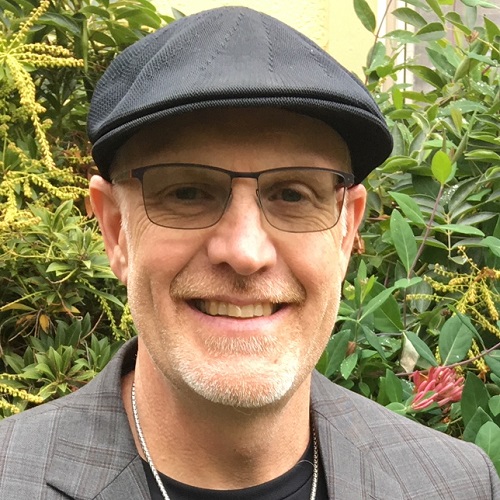
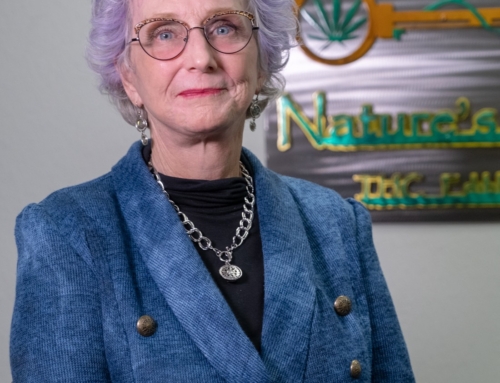
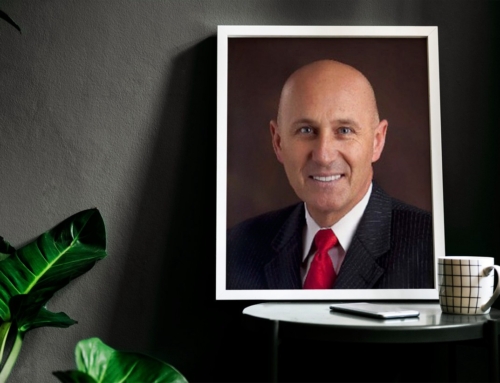
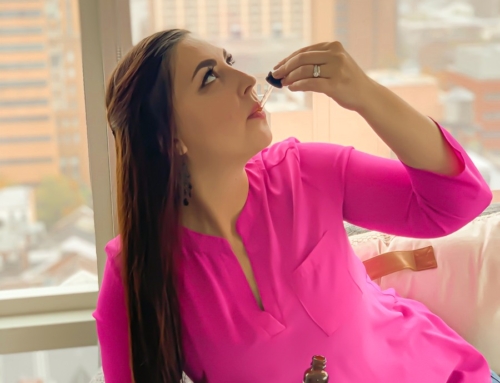

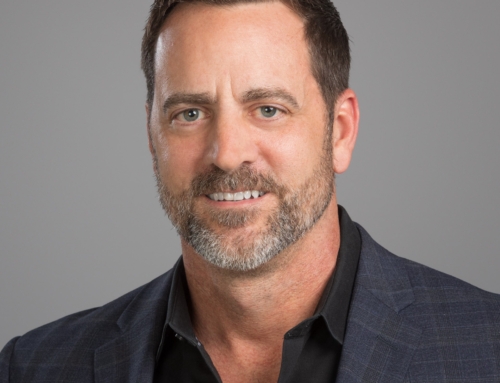
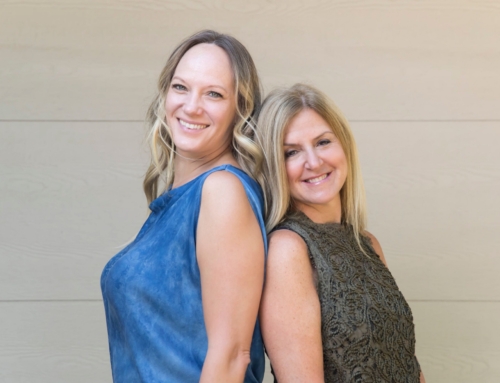
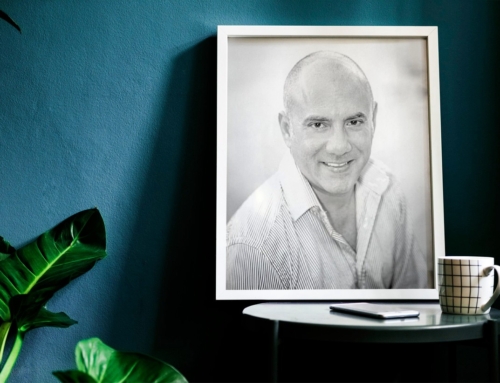
![“The potential to help people [in this industry] is enormous, but there’s still so much to learn.” – Ramon Alarcon, Witi](https://lakesideremedy.com/wp-content/uploads/2020/12/1thj5ekUyxQ69iLz1JJyODg-scaled-e1607882756286-500x383.jpeg)
